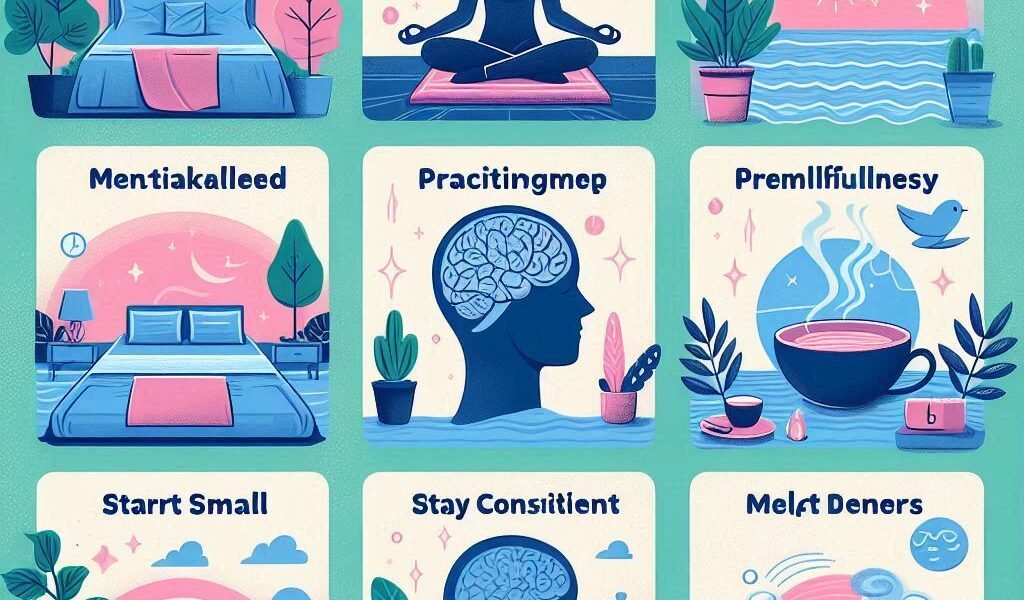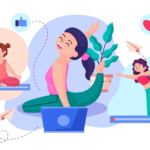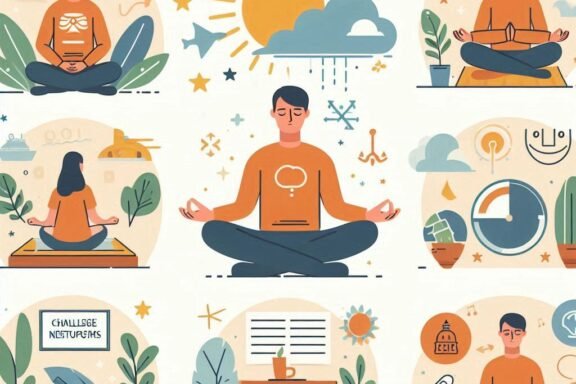The Transformative Power of Travel, Music, and Self-Care: A Holistic Approach to Rejuvenating Your Mind and Body
In the modern world, where stress and burnout have become ubiquitous, the need for profound self-care practices has never been more critical. As the demands of our professional and personal lives continue to grow, finding sustainable ways to recharge, heal, and nurture both the mind and body is essential. Among the most effective, yet often overlooked, practices are travel, music, and self-care routines. These elements, when integrated mindfully, form a powerful trio that can rejuvenate your mental health, foster emotional resilience, and revitalize your physical well-being.
In this blog, we will explore how travel provides a rich tapestry for emotional release and mental clarity, music serves as a powerful tool for emotional regulation and healing, and self-care practices provide the foundation for long-lasting well-being. Together, these pillars create a comprehensive, holistic approach to personal rejuvenation.
1. Travel: The Therapeutic Benefits of Changing Your Environment
Travel is one of the most effective forms of self-care for a reason—it allows you to disconnect, recharge, and gain perspective. While daily routines can become draining, travel—whether it’s a weekend getaway or an international adventure—offers an escape from the mundanity of everyday life. It allows you to break free from your habitual environment, engage in new experiences, and explore different cultures. These shifts not only refresh the body but also provide profound mental and emotional benefits.
The Psychological Benefits of Travel:
- Stress Reduction: Stepping out of your everyday environment helps alleviate the constant pressure that often builds from work, family obligations, and urban living. Travel gives you space to relax, slow down, and experience new stimuli, which naturally reduces stress.
- Increased Creativity and Mental Clarity: Experiencing new environments and cultures can stimulate creativity. The unfamiliar settings, landscapes, and social interactions often unlock new ideas and thought patterns, fostering innovation and mental clarity. The ability to step away from routine pressures encourages new perspectives and problem-solving approaches.
- Reconnection with Yourself: Traveling alone or with close companions offers an opportunity for self-reflection. Whether you’re hiking through a remote forest or wandering through a historical city, the change of scenery helps create space for introspection. These moments can reconnect you with your desires, passions, and life goals.
- Improved Social and Emotional Well-being: Traveling also allows you to nurture relationships by spending quality time with loved ones. It creates shared experiences, strengthens bonds, and provides opportunities for personal growth and emotional connection.
Destinations for Restorative Travel:
- Nature Escapes: Retreating into nature, whether through hiking, camping, or simply spending time in a peaceful natural setting, can be incredibly restorative for both mind and body. Nature has been shown to lower cortisol levels, reduce anxiety, and promote emotional healing.
- Cultural Exploration: Immersing yourself in a new culture through travel offers enriching experiences that expand your worldview, promote mindfulness, and provide ample opportunities for relaxation and joy.
- Wellness Retreats: Many individuals seek out wellness resorts or spiritual retreats that combine relaxation, nutrition, yoga, and meditation to achieve a sense of total renewal. These spaces focus on creating balance and provide a structured approach to self-care.
Ultimately, travel offers a physical and emotional reset, allowing you to step away from stressors and emerge with a renewed sense of energy, perspective, and inner peace.
2. The Healing Power of Music in Your Self-Care Routine
Music is a universally recognized tool for emotional healing and regulation. The therapeutic effects of music have been well-documented, with studies revealing that music can have a significant impact on stress reduction, mood regulation, and even cognitive function. By incorporating music into your self-care routine, you can harness its power to heal and uplift your emotional state, making it a valuable tool for overall wellness.
The Science Behind Music’s Healing Effects:
- Emotional Regulation: Music has the ability to directly affect the limbic system, the part of the brain responsible for processing emotions. Different genres of music can evoke a wide range of emotions, from relaxation and joy to sadness and introspection. By consciously choosing music that aligns with your emotional state or desired outcome, you can regulate your mood, calm anxiety, and even elevate your energy levels.
- Stress Reduction: Studies have shown that listening to soothing or ambient music can reduce cortisol levels, the hormone associated with stress. Slow tempos, gentle melodies, and ambient sounds such as nature noises can elicit a calm, relaxed state and lower heart rates.
- Cognitive Benefits: Music is also beneficial for cognitive function. For example, classical music and instrumental tracks are often used to improve focus, concentration, and memory. Whether you’re studying, working, or simply trying to maintain mental clarity, the right music can facilitate optimal brain function.
- Healing from Trauma: Music is often used in therapeutic settings to help individuals process trauma. Music therapy has been shown to aid in emotional expression, allowing individuals to work through grief, trauma, and loss by engaging with songs that resonate with their experiences.
Practical Ways to Use Music for Self-Care:
- Create Playlists for Different Moods: Customize playlists based on your emotional needs. For example, if you’re feeling stressed, you can curate a playlist of calming instrumental music or sounds of nature. Alternatively, if you’re seeking energy, up-tempo tunes can lift your mood and motivate you to be productive.
- Incorporate Music into Meditation or Yoga: Many self-care routines, including yoga or mindfulness meditation, benefit from the incorporation of music. Soft, slow music or binaural beats can deepen your practice, enhance relaxation, and improve focus.
- Music as a Stress Break: Sometimes, taking a brief break to listen to your favorite song can help reset your mood. Even just five minutes of active listening can lower stress and provide a sense of refreshment.
The power of music lies in its accessibility and ability to evoke deep emotional responses. By weaving music into your daily life, you can create a personalized tool for emotional wellness that supports your self-care goals.
3. Integrating Travel, Music, and Self-Care for a Holistic Routine
When we think of self-care, it’s easy to focus on individual practices—such as eating healthy foods, getting enough sleep, or exercising. However, the integration of travel and music into your self-care routine adds a dynamic layer that promotes both emotional healing and mental clarity. These elements provide not only temporary relief but also long-term benefits by fostering a deeper connection to yourself and the world around you.
Travel + Music for a Holistic Escape:
- Create a Soundtrack for Your Travels: Music and travel go hand-in-hand. Curating a playlist that matches the mood of your trip can enhance your experience. For example, if you’re on a solo journey to a tranquil mountain retreat, soft acoustic tunes or ambient music can amplify the serenity. Alternatively, if you’re exploring vibrant cities or cultural landmarks, upbeat music or local rhythms can immerse you in the experience.
- Mindful Travel Practices: When traveling, integrate mindful self-care by incorporating music into moments of quiet reflection. Whether it’s listening to calming music as you watch the sunset or using music to unwind after a busy day of exploration, it can help center you and maintain a sense of peace throughout your travels.
The Combined Impact of Travel, Music, and Self-Care:
- Rejuvenating the Body and Mind: Both travel and music create opportunities for self-reflection and rejuvenation. Travel allows you to experience a new sense of freedom and joy, while music provides the emotional soundtrack that enhances those experiences. Together, they form a powerful synergy that not only refreshes the body but also nourishes the soul.
- Balanced Emotional Health: The combination of travel’s stress-relieving effects and music’s emotional regulation can help you cope with emotional upheaval or stress. This allows for a balanced, grounded approach to personal wellness.
Ultimately, incorporating travel, music, and self-care practices into your lifestyle can help foster a deep sense of peace, relaxation, and joy. These elements create a holistic approach to health that rejuvenates the mind, body, and soul.
Conclusion: A Comprehensive Approach to Wellness
The integration of travel, music, and self-care routines creates a dynamic, holistic approach to achieving well-being. Travel provides the space for emotional release, stress reduction, and mental clarity, while music offers a therapeutic tool for regulating mood, enhancing relaxation, and improving focus. Self-care practices, when combined with these elements, help sustain long-term wellness, fostering a life of balance, joy, and resilience.
By consciously incorporating these practices into your life, you can create a well-rounded self-care routine that nurtures your physical, emotional, and mental health, allowing you to thrive in an increasingly demanding world.







No Comments